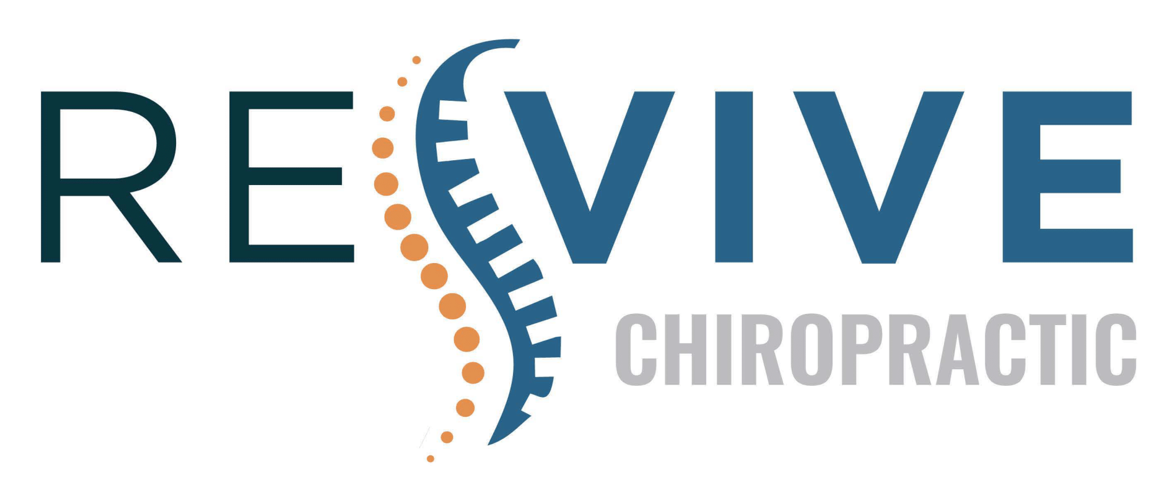When you're dealing with a headache or migraine, finding an effective remedy can feel overwhelming. You might be surprised to learn that natural options, like herbal teas and essential oils, can provide significant relief without the side effects of conventional medications. Techniques such as acupressure and simple lifestyle changes can also play an essential role in managing your discomfort. Curious about which remedies might work best for you? Let's explore some effective strategies that could change how you approach your headaches.
Herbal Tea Options
When you feel a headache coming on, sipping on herbal tea can provide soothing relief. Herbal teas aren't only comforting but also packed with natural compounds that may help ease your discomfort. One of the best options is peppermint tea. Its menthol content can help relax muscles and improve blood circulation, which can alleviate headache pain. Simply brew a cup and inhale the invigorating aroma while you sip.
Another excellent choice is chamomile tea. Known for its calming properties, chamomile can reduce stress and promote relaxation, which is essential when dealing with headaches. Enjoying a warm cup before bed can also help you unwind, preventing tension headaches from taking hold.
Ginger tea is another powerful ally. Ginger has anti-inflammatory properties that can reduce headache symptoms, especially migraines. If you find fresh ginger, steep it in hot water for a few minutes, and enjoy the spicy flavor along with its benefits.
Lastly, consider lemon balm tea. This herb has a mild sedative effect, which can help alleviate tension headaches caused by stress. It's easy to brew and can be a delightful addition to your tea routine.
Incorporating these herbal teas into your daily life can provide a natural, effective approach to managing headaches. Whether you prefer the invigorating taste of peppermint or the calming effects of chamomile, each sip can bring you one step closer to relief.
Essential Oils for Relief
If you're seeking quick relief from headaches, essential oils can be a powerful ally in your natural remedy toolkit. These concentrated plant extracts possess various therapeutic properties that can help ease tension and pain. Here are a few essential oils you might consider incorporating into your routine.
Peppermint oil is one of the most popular choices. Its menthol component provides a cooling sensation that can soothe headaches, especially tension headaches. Simply dilute a few drops in a carrier oil and apply it to your temples and the back of your neck. You can also inhale the aroma directly from the bottle for an instant pick-me-up.
Lavender oil is another excellent option. Known for its calming properties, it can help reduce stress and anxiety that often accompany headaches. You can diffuse lavender oil in your home, add it to a warm bath, or apply it topically in a diluted form.
Eucalyptus oil can be beneficial as well, particularly for sinus-related headaches. Its anti-inflammatory properties help clear sinuses, allowing for better airflow. You can inhale it or mix it with a carrier oil and massage it onto your sinuses.
Lastly, rosemary oil may aid in improving circulation, which can alleviate headache symptoms.
Just remember to use essential oils safely. Always dilute them with a carrier oil before applying them to your skin, and consult a healthcare professional if you have any concerns. By integrating these essential oils into your headache relief strategy, you might find the comfort you need.
Dietary Adjustments
Making dietary adjustments can greatly impact your headache frequency and intensity. The foods you eat can either trigger or help alleviate headaches, so it's important to pay attention to what's on your plate. Start by identifying common headache triggers, like caffeine, aged cheeses, and processed meats. Reducing or eliminating these from your diet may lead to fewer headaches.
Incorporating omega-3 fatty acids found in fish, flaxseeds, and walnuts can help reduce inflammation, which may ease headache pain. Staying hydrated is also significant. Dehydration is a common headache trigger, so aim for at least eight glasses of water a day. If you're not a fan of plain water, try herbal teas or infused water for a tasty alternative.
Regular meals can also play a key role in headache prevention. Skipping meals can lead to drops in blood sugar, potentially triggering a headache. Try to eat balanced meals that include whole grains, lean proteins, and plenty of fruits and vegetables to maintain steady energy levels.
Some individuals find relief by incorporating magnesium-rich foods into their diet, such as spinach, almonds, and bananas. Magnesium may help relax blood vessels and reduce headache frequency.
Finally, keeping a food diary can help you track what you eat and identify specific triggers unique to you. By making these dietary adjustments, you can take proactive steps toward reducing the occurrence and intensity of headaches.
Acupressure Techniques
Acupressure techniques have been used for centuries to relieve various ailments, including headaches. This traditional Chinese medicine practice involves applying pressure to specific points on your body, which can help alleviate pain and promote relaxation. You don't need any special equipment; just your fingers and a bit of focus.
To get started, find a comfortable position where you can relax. One effective point to target is the LI4 point, located between your thumb and index finger. Gently pinch this area with your opposite thumb and forefinger, applying firm pressure for about 30 seconds. You might feel a slight ache—this means you're on the right track! Repeat this technique on the other hand.
Another useful point is the GB20, located at the base of your skull, where your neck meets your skull. Use your thumbs to press into this area for 30 seconds. You can also try massaging the area in small circular motions. This can help release tension and improve circulation, which may ease your headache.
Lastly, don't overlook the importance of your temples. Use your index and middle fingers to apply pressure to your temples in a circular motion. This can be soothing and help to reduce the intensity of your headache.
Acupressure is a simple, accessible remedy that you can try anytime you feel a headache coming on. By incorporating these techniques into your routine, you might find relief without needing to rely on medications.
Lifestyle Changes
Incorporating simple lifestyle changes can greatly reduce the frequency and intensity of headaches. Start by paying attention to your hydration. Dehydration is a common headache trigger, so make certain you drink enough water throughout the day. Keep a water bottle with you and set reminders if needed to guarantee you're staying properly hydrated.
Next, evaluate your diet. Certain foods can contribute to headaches, especially processed items and those high in sugar. By focusing on a balanced diet rich in fruits, vegetables, whole grains, and lean proteins, you may find relief.
It's also wise to keep a food diary to identify any specific triggers that could be causing your headaches.
Sleep is another vital factor. Aim for 7-9 hours of quality sleep each night and maintain a consistent sleep schedule. Avoid screens before bedtime, and create a relaxing bedtime routine to help improve your sleep quality.
Regular exercise can also play a significant role in headache management. Aim for at least 30 minutes of moderate physical activity most days of the week. Whether it's walking, swimming, or yoga, find an activity you enjoy, as this increases the likelihood that you'll stick with it.
Lastly, make certain you're taking breaks throughout your day, especially if you're working on a computer. Stand up, stretch, and give your eyes a rest to prevent tension headaches.
Stress Management Strategies
Managing stress is key to alleviating headaches, as tension and anxiety can often trigger or exacerbate symptoms. By implementing effective stress management strategies, you can reduce the frequency and intensity of your headaches.
Here are four strategies to contemplate:
- Practice Mindfulness: Take a few minutes each day to focus on your breath and be present. Mindfulness meditation can help clear your mind and reduce stress levels.
- Engage in Regular Exercise: Physical activity releases endorphins, which can improve your mood and lower stress. Aim for at least 30 minutes of moderate exercise most days of the week.
- Establish a Routine: Create a daily schedule that includes time for work, relaxation, and social activities. Having a structured routine can help manage stress and provide a sense of control.
- Connect with Others: Don't underestimate the power of social support. Reach out to friends or family when you're feeling overwhelmed. Sharing your thoughts and feelings can lighten your load.
Hydration and Its Importance
Staying hydrated is crucial for your overall health and can considerably impact how often you experience headaches. When your body doesn't get enough fluids, it can lead to dehydration, which is a common trigger for both tension-type headaches and migraines. Even mild dehydration can cause discomfort and amplify headache symptoms, so it's essential to stay on top of your water intake.
You should aim to drink at least eight 8-ounce glasses of water a day, but your specific needs may vary based on your activity level, climate, and overall health. Listen to your body; if you feel thirsty, that's a clear sign you need to drink more. Keeping a water bottle handy can help you stay mindful of your hydration throughout the day.
In addition to plain water, consider incorporating hydrating foods into your diet. Fruits and vegetables like cucumbers, watermelon, and oranges have high water content and can boost your hydration levels. Herbal teas and electrolyte-rich beverages can also be beneficial, especially if you're physically active or sweating a lot.
If you're prone to headaches, make a conscious effort to monitor your hydration. Set reminders on your phone or use a hydration tracking app to help you stay consistent.
Conclusion
Incorporating natural remedies into your routine can greatly ease headaches and migraines. Herbal teas, essential oils, and acupressure techniques offer effective relief, while dietary adjustments and lifestyle changes help prevent future episodes. Don't underestimate the power of hydration and stress management, either; they play an essential role in your overall well-being. By embracing these strategies, you can take charge of your health and find the relief you deserve. Remember, a holistic approach is key to long-lasting comfort.



